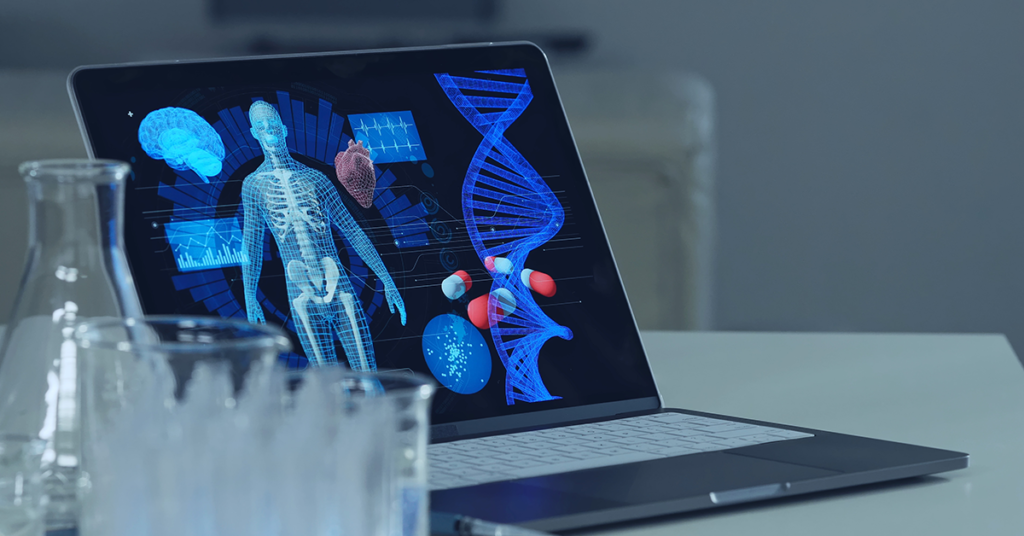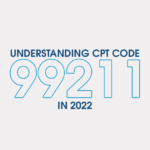
In this rapidly evolving world, technology has the power to revolutionize any process. Artificial intelligence and machine learning technologies are two such technologies that have miraculously transformed many businesses. AI demonstrates a system that not only analyzes data with advanced algorithms but is also capable of self-learning to become intuitive over time. It is very similar to how humans gain expertise in something with experience.
The exercise of isolating the manual and repetitive procedures that are time-consuming, costly, and ineffective and automating them by using different algorithms brings in efficiency and accuracy. It is no surprise that the tremendous potential of use of Artificial Intelligence is being adapted across all industries. Medical coding has also embraced the Artificial Intelligence technology to optimize efficiency, enhance accuracy, applying proper codes, minimize claim denials and to improve overall workflows in the insurance and billing cycle. Artificial intelligence medical coding seems to be the future of medical coding.
Artificial Intelligence in the Healthcare Industry
Over the last two decades, healthcare has been no stranger to digitization and experimentation with technology to improve patient outcomes. From AR and VR to precision medicine and nutrigenomics, it was only a matter of time before artificial intelligence was also welcomed and the results have only been promising.
Nurse-like chatbots capable of answering basic questions via natural language interpretation, and shortlisting possible diagnoses for medical experts by analyzing the symptoms with complex algorithms are examples of artificial intelligence in healthcare. Similarly, AI can assess data from medical records and assist surgeons in real-time with robotic surgery.
AI has been instrumental in predicting the trends in outbreaks of epidemics, has helped virtual physician visits, automated routine activities, and introduced wearable health monitors, exponentially improving the healthcare landscape. Artificial intelligence medical coding is a new addition whose role is predicted to expand soon.
Artificial Intelligence Medical Coding
The healthcare is a data-immersive industry. Multiple streams of information are captured every day from diversified avenues. Be its patients’ electronic health records, hospital information systems, or service provider’s accounting system. All of it needs to be interpreted and organized quickly and accurately. It is where AI-driven technologies and natural language processing aka NLP comes into play. NLP focuses on helping computers to understand the way that humans write and speak and adapt the human language in process modeling. The use of advanced data analytics and NLP helps in mapping information from multiple sources and automate the coding process. {My comments, ML is not AI, but a subset of AI.
In the US, mishandling of medical billing process leads to billions of dollars of revenue and resource loss in, wrong billing and improper payments. Manual medical coding and billing were ridden with miscalculations and poor error-checking strategies. This was time-consuming and ineffective and for a long time, there was no way to circumvent it.

Artificial intelligence medical coding and billing have received significant attention lately because the extended life cycle for baby boomers has resulted in growth of patient needing medical care. The higher number of patients without the use of AI only means a higher number of billing errors. Use of AI in conjunction with EHR, using ML in medical coding improves clinician’s accuracy. It also helps provide real time feedback to the medical practices in reducing coding errors and provides more accuracy and improved findings in a quicker processing time, easing the financial burden imposed by subpar billing.
The healthcare industry required a more intelligent back-end system and AI medical billing is just that. Many AI-driven solutions have already been introduced into the medical sector, and it helps in the following ways.
Translating EHR Data into Appropriate Codes
Hospitals and health insurance providers require detailed reports on what exactly was wrong with the patient and what steps were taken to correct it for appropriate financial reimbursement. However, the incoming data is not only abundant but is also unstructured in the form of detailed doctor and nurses’ reports and electronic health records.
This data requires a sorting and organizational intelligence with processing power greater than human medical coders, and AI medical coding uses speech recognition for clinical documentation, machine learning for data extraction, and other language models like Google or Open AI to accurately interpret medical paperwork.
Reading a medical chart from start to end is a difficult task, but you cannot afford to mislabel anything. Artificial intelligence medical coding crafts algorithms to quickly translate all this unstructured information, connect distinct pieces of data into a logistical timeline and assign unambiguous classification codes (standardized) to make sense of everything.
Interpreting this information manually requires experience, time consuming and always subjected to human error.
Assigning Accurate Codes
Artificial intelligence medical coding improves performance and efficiency by optimizing the back-end systems to find accurate codes. The new ICD-11 contains higher than 55,000 diagnostic codes, which is 400% higher than those in the ICD-10. Additionally, an enhanced version of ICD-10 specific to the US contained around 140,000 classification codes, 70,000 diagnosis codes, and 70,0000 codes to denote treatments.
With such a high number of billable codes, no one can remember every single one for every disease and treatment. For a fracture alone, a right-displaced bone and a left-displaced bone have separate codes, and there may be more than one way to code a diagnosis or treatment. Each one is very important because if there are multiple diagnoses, it means the physician spent more time and must therefore be billed accordingly.

Codebooks and vast lists to look up the right codes and computer programs have been the go-to resources, but this takes years of experience to master, not to mention how slow this process is. Given the sheer amount of it, there isn’t enough processing time which is why artificial intelligence medical coding can rapidly replace this manual task.
Conducting Medical Audits
Besides accurately coding electronic health records’ data, artificial intelligence can also automatically conduct audits by working in conjunction with computer-assisted coding programs to maximize error checking. Moreover, since AI evolves with the environment around it, it learns from the data it receives and makes predictions and judgments that correct over time.
This further streamlines medical coding and billing, raising the processing time and minimizing the number of errors, denied claims, and loss of revenue.
Cost of Artificial Intelligence Medical Coding
While adopting artificial intelligence medical coding may incur a high developmental cost in some cases, but it will result more precise, accurate and focused billing. The manual processes currently practiced in most practices result in significant loss of revenue. The adaptation of AI-driven solutions will eliminate the erroneous billing and result in improved efficiency and profitability.
Impact of AI Medical Billing on Medical Coders
The future of medical coding with artificial intelligence is an empowering one. While many think that this revolution in healthcare billing and insurance cycle will come at the cost of medical coder jobs, that could not be further from the truth. Medical coding is so complex, with a wide array of variables, that it is incapable of ever becoming fully automated.
An artificial intelligence medical coding system will always need a supervisor and auditor who will verify the codes assigned by the system since this has a tangible effect on human lives. AI will not replace medical coders but support their work by relieving them of repetitive tasks that can be automated to assign meaningful tasks like identifying trends of unusual numbers of adverse effects being reported and spotting errors. This will reduce medical coding fatigue and burnout among these workers.
With the exponential growth of healthcare data and complexity expected to continue, the expertise of medical coders remains in high demand. The US Bureau of Labor Statistics projects 8% growth for the profession between 2019 and 2029, which is faster than the estimated growth rate for other professions.This is why despite the promises of artificial intelligence medical coding, the US Bureau of Labor Statistics (BLS) predicts an 8% growth among medical coders between 2019 and 2029. It can be expected that coding jobs will evolve into auditor and supervisor positions soon.
See Also: The Difference Between Professional Billing and Institutional Billing: Two Types of Medical Billing
The Bottom Line
Artificial intelligence medical coding replaces all manual work with impact-driven solutions that have narrow margins of error. Besides helping patients never get overcharged, it prohibits any revenue loss and allows the hospitals to receive what they deserve.
Precision Hub promises similar benefits with its state-of-the-art technology that optimizes the revenue management cycle. If you want to hand the administrative side of your practice to the industry’s leading experts and streamline claims management, partner with America’s technology driven medical billing company today.







No comment yet, add your voice below!